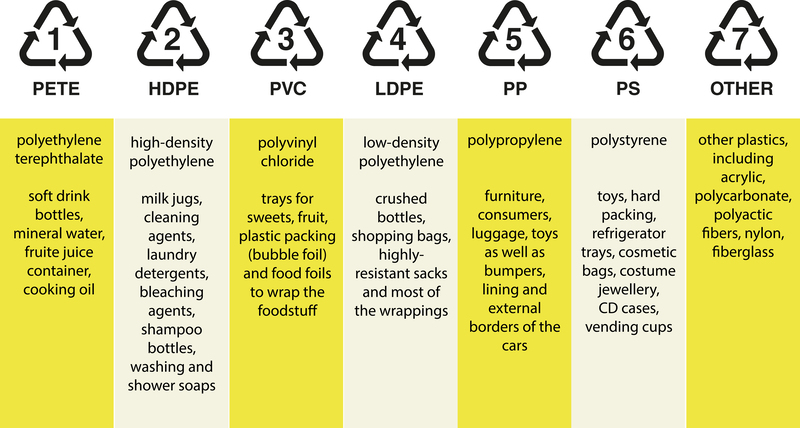Disposing of PPE Waste in an Eco-Conscious Way: A Comprehensive Guide
Personal Protective Equipment (PPE) has played a vital role in public health, particularly during the COVID-19 pandemic. However, the increased use of disposable masks, gloves, and gowns has triggered a new environmental concern--the safe and sustainable disposal of PPE waste. Addressing this issue is crucial for protecting both human health and the environment. This article delves deep into eco-conscious methods of disposing of PPE waste, offering actionable strategies for individuals, businesses, and healthcare sectors.

Understanding the Impact of PPE Waste on the Environment
The surge in PPE production and usage has led to a staggering amount of plastic pollution. Latex gloves, N95 masks, and face shields made from polyethylene and polypropylene do not biodegrade quickly and can remain in landfills or oceans for decades.
The Scale of the Problem: Alarming PPE Waste Statistics
- More than 129 billion face masks and 65 billion gloves are used globally every month (Source: Environmental Science and Technology, 2020).
- Improper disposal leads to PPE litter found on streets, parks, and waterways.
- Wildlife often mistakes PPE for food, leading to fatal consequences.
The environmental crisis sparked by PPE litter underlines the necessity of eco-friendly PPE disposal practices.
Challenges in Disposing of Single-Use PPE Waste
While PPE is designed for single use to ensure hygiene, its disposal presents unique challenges:
- Contamination Risks: PPE may carry pathogens and must be handled carefully to prevent the spread of diseases.
- Limited Recycling Options: Many municipal facilities are not equipped to recycle mixed-material PPE.
- Volume Overload: The unprecedented use of PPE has overloaded waste management systems worldwide.
- Unclear Disposal Guidelines: A lack of public knowledge leads to incorrect discarding of PPE waste.
Key Principles for Eco-Conscious PPE Waste Disposal
- Reduce unnecessary use where possible and opt for reusable options.
- Segregate PPE from regular waste to prevent contamination.
- Innovate by supporting or developing new recycling and treatment methods.
- Educate staff and the public about responsible disposal of disposable protective equipment.
Safe and Green Methods for Disposing of PPE Waste
Let us explore sustainable practices for disposing of PPE waste for individuals, organizations, and communities.
1. Opt for Reusable PPE Where Feasible
Choose high-quality, washable masks, and gowns made from durable textiles for daily use outside high-risk healthcare settings. These options can significantly reduce waste over time.
2. Proper Segregation and Containment
PPE waste should be stored separately in a sealed bag or bin. Infected or heavily used items must never be mixed with recyclables or compost. Label containers clearly as "PPE Waste--Do Not Recycle."
3. Community PPE Collection Points
Some cities and healthcare providers have set up designated PPE waste collection bins for masks and gloves. These bins are handled by specialized waste management teams who ensure proper treatment.
4. Innovative Recycling Programs
Although recycling PPE is challenging, innovative companies are now developing methods to process and repurpose disposable PPE:
- TerraCycle and other organizations offer PPE recycling boxes for businesses and institutions.
- Certain plastics from masks and face shields can be sterilized, shredded, and converted into products like plastic lumber, benches, and playground equipment.
- New pilot programs by universities and startups are investigating chemical recycling of mixed PPE materials.
5. Thermal Treatment and Energy Recovery
Where recycling is not feasible, controlled incineration with energy recovery provides a way to minimize landfill accumulation and generate usable energy.
6. Composting Biodegradable PPE
Biodegradable and compostable PPE products are entering the market. These must be certified compostable to ensure they break down safely in industrial composting facilities.
Guidelines for Different Sectors:
Healthcare Facilities
- Follow national biomedical waste protocols for segregating, storing, and treating infectious PPE waste.
- Partner with certified waste handlers who offer eco-friendly treatment like autoclaving and energy recovery.
- Switch to certified reusable PPE wherever possible without compromising safety.
- Educate staff about proper segregation and minimizing use of single-use kits.
Business and Office Settings
- Provide clearly marked PPE disposal bins for employees and visitors.
- Contact local recycling companies for special PPE programs.
- Stock up on reusable and washable PPE options, especially if risk of contamination is low.
Schools and Institutions
- Run awareness campaigns on eco-conscious PPE disposal.
- Incorporate PPE waste policies into campus sustainability plans.
- Work with local authorities to safely collect and treat PPE waste.
Households
- Seal used masks and gloves in a bag before placing in general waste bins.
- Do not throw PPE waste in recycling or compost bins unless certified compostable.
- Use cloth masks or reusable PPE for everyday protection when possible.
Eco-Conscious Alternatives to Traditional PPE
The best way to reduce environmental impact of PPE disposal is by opting for sustainable alternatives:
- Reusable Face Masks: Choose multi-layer, washable masks made from organic cotton or hemp.
- Biodegradable Gloves: Look for gloves made from plant-based materials, such as PLA or other compostable plastics.
- Face Shields & Gowns: Select products designed for multiple uses and end-of-life recyclability.
Pro tip: Always verify certifications for compostable or recyclable PPE to avoid greenwashing.
The Role of Innovation in Sustainable PPE Waste Management
Entrepreneurs, scientists, and engineers worldwide are pioneering new solutions for environmentally-friendly PPE waste disposal:
- Development of advanced mechanical and chemical recycling techniques for mixed-plastic PPE.
- Introduction of PPE manufactured from rapidly renewable resources, such as bamboo or waste agricultural fibers.
- Smart bins and sensors for tracking and managing PPE waste flows in hospitals and public spaces.
- Mobile apps and blockchain platforms to ensure transparent, certified disposal and recycling of PPE.
By embracing these innovations, communities can make significant strides toward minimizing the ecological footprint of PPE waste.
How Individuals Can Make a Difference
Reducing the environmental burden of disposable masks and gloves starts with simple shifts in personal behavior:
- Educate yourself and others about proper PPE disposal guidelines in your region.
- Support brands and businesses committed to sustainable PPE manufacturing and recycling.
- Report PPE litter and participate in local clean-up initiatives.
- Advocate for legislation requiring improved waste treatment and recycling infrastructure.
Proactive Policy and Industry Recommendations
- Mandate clear labeling on all PPE regarding their disposal requirements (recyclable, compostable, landfill only, etc.).
- Incentivize investment in PPE recycling infrastructure and eco-design.
- Require government and private sector organizations to report on PPE waste generated and disposed of.
- Fund research into new eco-friendly PPE materials and scalable waste treatment methods.

Frequently Asked Questions About Eco-Conscious PPE Waste Disposal
Can PPE waste be recycled?
While most traditional recycling centers do not accept PPE due to contamination and material complexity, specialized programs do exist. Check if your business or community can access schemes like TerraCycle's PPE boxes.
Is it safe to reuse PPE?
Certain types of PPE, such as washable cloth masks and gowns, are designed for reuse. However, single-use disposable masks and gloves should not be reused for hygiene reasons.
What happens if PPE waste ends up in nature?
Improperly discarded PPE becomes litter, endangering wildlife, damaging ecosystems, and potentially spreading pathogens. It also contributes to persistent plastic pollution.
How can businesses reduce their PPE waste footprint?
By switching to reusable and recyclable options, providing dedicated waste collection bins, and engaging in certified PPE waste recycling programs, businesses can minimize environmental impact.
Are biodegradable PPE products available?
Yes, the market for biodegradable PPE is expanding. Always check certifications for compostability and proper disposal methods.
Conclusion: Take Action for a Sustainable Future
The urgent need for disposable PPE during the global pandemic has come with unintended consequences for our planet. Yet, we have the power to change the fate of our ecosystems by choosing eco-friendly PPE, following safe disposal practices, and supporting innovative waste management solutions. Disposing of PPE waste in an eco-conscious way is not just a responsibility--it's an opportunity to drive positive environmental change.
By educating ourselves, advocating for better systems, and choosing sustainable PPE options, we can protect human health hand-in-hand with the health of our planet. Every mask properly disposed of, every reusable glove selected, is a step toward a cleaner, safer world.
- Reduce, reuse, and recycle PPE wherever possible.
- Segregate and seal disposable PPE waste before general disposal.
- Support new technologies and policy reforms for better PPE waste management.
Choose to make a difference--dispose of PPE waste the eco-conscious way today.